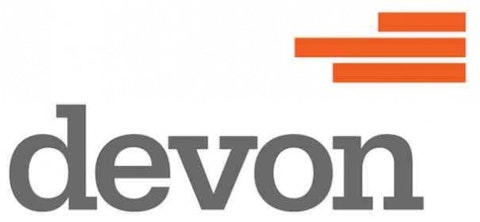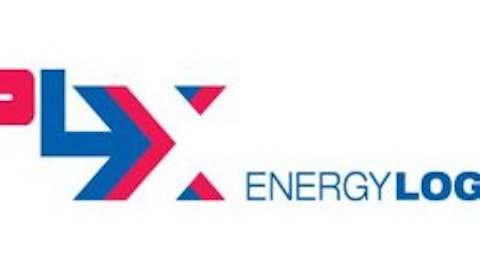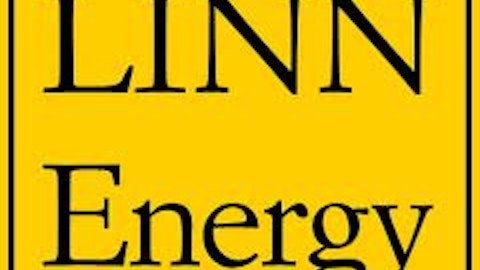In my previous article, I wrote about Tweedy Browne’s two largest positions: Johnson & Johnson (NYSE:JNJ) and Cisco Systems, Inc. (NASDAQ:CSCO). Those two stocks seem to be qualified for investors to hold for the long run. In this article, I will cover two oil/gas stocks that Tweedy Browne is bullish about. One is Devon Energy Corp (NYSE:DVN) and the other is ConocoPhillips (NYSE:COP). Those two stocks combined accounted for 10.8% of its portfolio. Let’s look closely to see whether or not we should buy those two stocks for our own portfolios.

Devon Energy is one of the leading energy company in the US with the operations in different North America onshore areas in the US and Canada. The majority of its revenue, $7.15 billion, or 75.3% of the total revenue, was generated from the sale of oil, gas and natural gas liquids (NGL). The second biggest revenue source was the marketing and midstream segment, with nearly $1.66 billion in revenue in 2012. Devon Energy Corp (NYSE:DVN) generated a loss of $206 million in 2012 as it incurred more than $2 billion in asset impairments. In December 2012, Devon had estimated proved reserves of around 3 billion BOE.
Devon didn’t employ huge amounts of debt in its operation. As of December 2012, it had $21.3 billion in total stockholders’ equity, $7 billion in cash and short-term investments, and nearly $11.65 billion in both long and short-term debt. The company generated around $5.2 billion in EBITDA, thus the Debt/EBITDA ratio stayed at around 2.24x. At the current trading price of $54.15 per share, Devon’s total market capitalization is nearly $22 billion. The market is valuing Devon at around 5.13 times EV/EBITDA. The company is paying investors a dividend yield of 1.5%.
Compared to its peers EnCana Corporation (USA) (NYSE:ECA) and EOG Resources Inc (NYSE:EOG), Devon has the cheapest valuation. Encana, with a trading price of $18.23 per share, is worth $13.42 billion on the market. The market is valuing Encana at 7.86 times EV/EBITDA. Among the three, EOG is the largest company with nearly $34.5 billion in total market cap. At the current price of $126.90 per share, the market is valuing EOG at 8.96 times EV/EBITDA. What makes me interested is that although Devon is valued the cheapest, it also the most profitable company among the three. It enjoyed 26% operating margin, while the operating margins of Encana and EOG Resources Inc (NYSE:EOG) were only 5% and 12%, respectively.
As of December 2012, Tweedy Brown owned nearly 3.74 million shares, with the total value of about $194.5 million, representing 5.7% of its total portfolio. Devon was the third largest position in Tweedy Brown’s portfolio.
The Largest Independent Oil & Gas Company
The fourth largest position was ConocoPhillips. It had nearly 3 million shares in the company, with a total market value of more than $173.2 million, accounting for 5.1% of its total portfolio. ConocoPhillips is considered the largest global independent exploration and production company, with worldwide operations. As of December 2012, it had 8.6 billion BOE in proved reserves. ConocoPhillips also had a quite conservative balance sheet as well. It had nearly $48 billion in total stockholders’ equity, more than $27 billion in cash and investments, and nearly $21 billion in debt. With the current trading price of $58.20 per share, ConocoPhillips is worth more than $71 billion on the market. It is valued quite cheaply, at only 4.24 times EV/EBITDA. ConocoPhillips is paying to investors a decent dividend yield of 4.6%.
Foolish Bottom Line
Indeed, both Devon and ConocoPhillips are worth holding for the long run as they are quite profitable, valued quite cheaply on the market, and employed reasonable amount of leverage. In addition, both of them might fit well with the portfolios of income investors, as both are paying sustainable and increasing dividends over time.
The article Tweedy Browne’s Top Stocks (Part II) originally appeared on Fool.com and is written by Anh HOANG.
Copyright © 1995 – 2013 The Motley Fool, LLC. All rights reserved. The Motley Fool has a disclosure policy.





